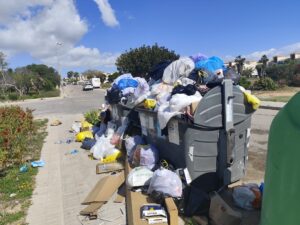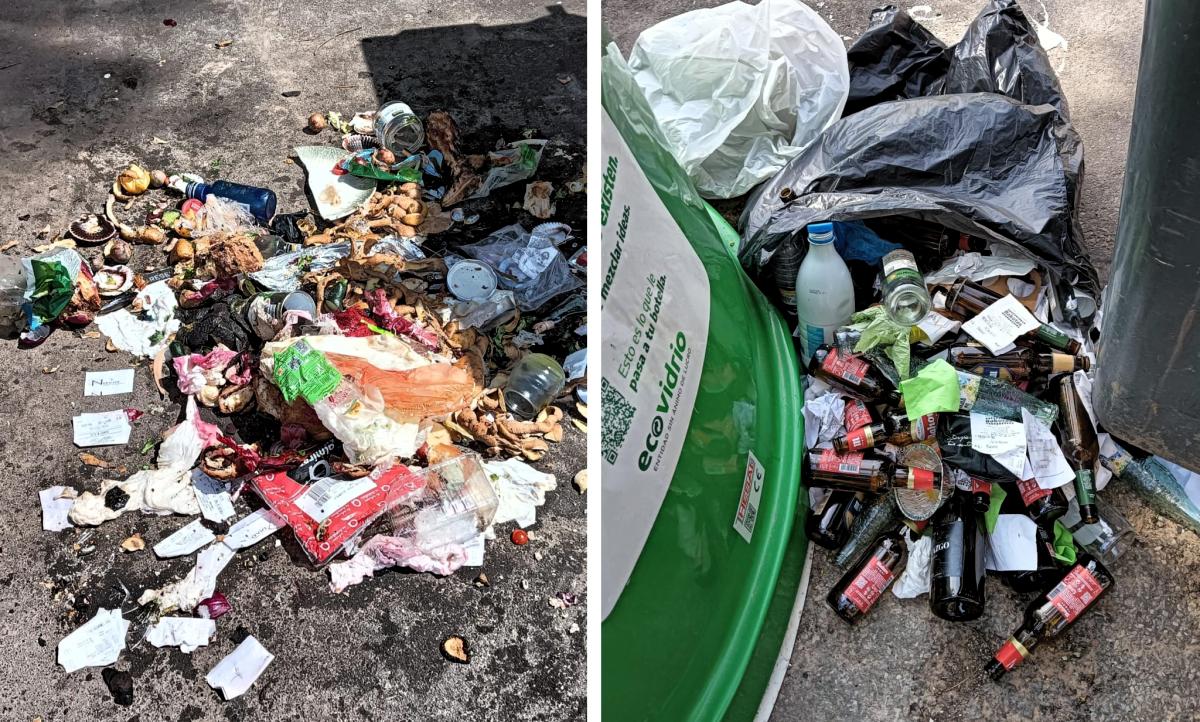Por Orihuela Costa Libre //
Los vecinos de Orihuela Costa han comenzado a pagar un incremento de un 341 % en la tasa de basura que triplica el actual recibo. El coste medio ha subido de 70 a 239 euros de media al año. Los vecinos del litoral hablan de otra Semana Santa para olvidar. El incremento de la tasa de basura es efectivo desde el uno de enero de este año, aunque es ahora cuando los vecinos están dándose cuenta de su verdadera dimensión.
Aunque el ayuntamiento de Orihuela achaca la subida a la Ley de Residuos de 2002 de rango europeo, está lo que obliga es a los ayuntamientos a cobrar al vecino la realidad del coste del servicio de basuras a fin de que los municipios no incurran en competencia fiscal entre ellos.

En este sentido, en la normativa europea se recuerda que el servicio de recogida de basuras es una tasa que hay que recaudar. No caben rebajas que se utilizan, a menudo, como argumento electoral y retraen dinero que se debe usar en otras cuestiones. En el municipio de Orihuela, hasta el año 2024 se recaudaban alrededor de 6,5 millones de euros por el servicio, en tanto que el coste real de este se estima en torno a los 15 millones con un déficit de 8,5 millones.
No obstante, sea por la renovación de valores catastrales o por cualquier otro criterio aplicado es la costa la que soporta el mayor incremento con 341% de subida.
Así, frente a los 70 euros de media para todo el municipio, la ciudad de Orihuela pasara a pagar un recibo anual de 203 euros ( + 290 % ), las pedanías 176 euros ( + 250 % ) y la costa 239 euros ( + 341 % ). Según a trascendido desde el equipo de gobierno PP-VOX en Orihuela ha primado sobre todo los valores catastrales -de ahí la subida en el litoral-, frente a las personas empadronadas en un domicilio, lo que habría beneficiados, por el contrario, a la costa.
Desde la municipalización del servicio los problemas de logística y la falta de material que repercuten en el servicio es evidente. En la costa, en concreto, hay tres camiones averiados que no se han repuesto, los nuevos contenedores no llegan y, en días señalados – como esta semana santa – la basura se acumular en contenedores a rebosar. Algunos vecinos se quejan, además, de que el recibo no esta llegando por lo que conviene solicitarlo para no incurrir en pago con demora.

More than 300% increase in the rubbish bill does not improve the service in Orihuela Costa
The residents of Orihuela Costa have started to pay a 341% increase in the rubbish tax which triples the current bill. The average cost has risen from 70 to 239 euros per year on average. However, coastal residents are talking about another Easter Week to forget.
The increase in the rubbish tax has been effective since the first of January this year, although it is only now that residents are realising its true extent. Although the Orihuela Town Hall blames the increase on the European Waste Law of 2002, which obliges local councils to charge residents the real cost of the rubbish service so that municipalities do not compete with each other in taxation.
In this sense, European legislation reminds us that the waste collection service is a tax that must be collected. There is no room for deficits or reductions which are very often used as an electoral argument and take away money that should be used for other matters. In the municipality of Orihuela, until the year 2024 around 6.5 million euros were collected for the service, while the real cost of this is estimated at around 15 million with a deficit of 8.5 million.
However, whether it is due to the renewal of cadastral values or any other unexplained criteria, it is the coast which has suffered the greatest increase, with a 341% rise.
Thus, compared to an average of 70 euros for the whole municipality, the city of Orihuela will pay an annual bill of 203 euros (+ 290 %), the pedanías 176 euros (+ 250 %) and the coast 239 euros (+ 341 %). According to information from the PP-VOX government team in Orihuela, the cadastral values – hence the increase on the coast – have taken precedence over the number of people registered at a given address, which would have benefited, on the contrary, the coast.
Since the municipalisation of the service, the logistical problems and the lack of material that affect the service are evident. On the coast, in particular, three lorries have broken down and have not been replaced, new containers have not arrived and, on special days – such as this Easter week – the rubbish accumulates in overflowing containers. Some residents complain, moreover, that the bill is not arriving, so it is advisable to ask for it so as not to pay late.
